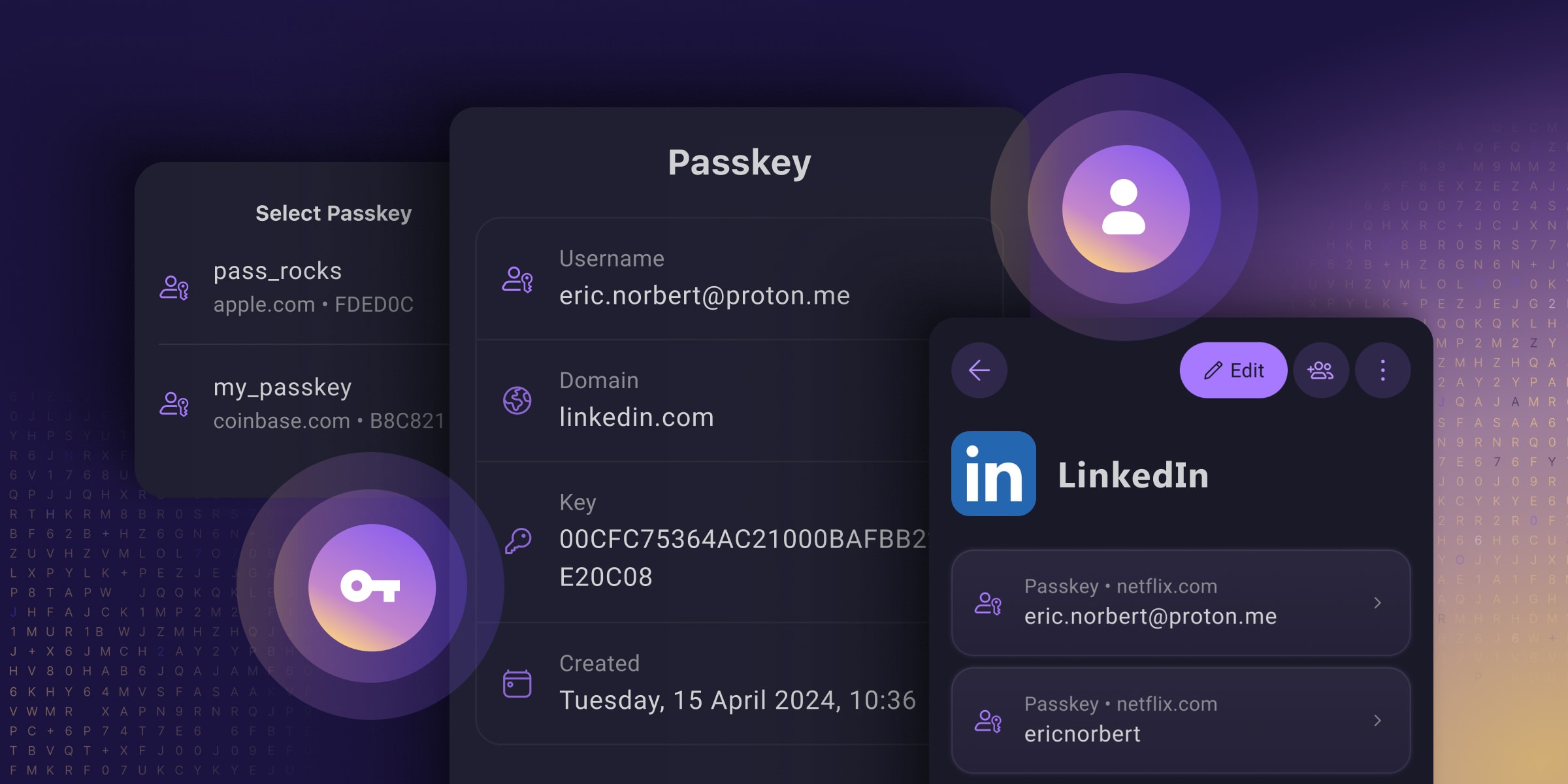- cross-posted to:
- [email protected]
- cross-posted to:
- [email protected]
Passkeys are an easy and secure alternative to traditional passwords that can help prevent phishing attacks and make your online experience smoother and safer.
Unfortunately, Big Tech’s rollout of this technology prioritized using passkeys to lock people into their walled gardens over providing universal security for everyone (you have to use their platform, which often does not work across all platforms). And many password managers only support passkeys on specific platforms or provide them with paid plans, meaning you only get to reap passkeys’ security benefits if you can afford them.
They’ve reimagined passkeys, helping them reach their full potential as free, universal, and open-source tech. They have made online privacy and security accessible to everyone, regardless of what device you use or your ability to pay.
I’m still a paying customer of Bitwarden as Proton Pass was up to now still not doing everything, but this may make me re-evaluate using Proton Pass as I’m also a paying customer of Proton Pass. It certainly looks like Proton Pass is advancing at quite a pace, and Proton has already built up a good reputation for private e-mail and an excellent VPN client.
Proton is also the ONLY passkey provider that I’ve seen allowing you to store, share, and export passkeys just like you can with passwords!
See https://proton.me/blog/proton-pass-passkeys
#technology #passkeys #security #ProtonPass #opensource



I’d be perfectly okay with them just charging for Bitwarden, period. Instead they pretend it’s free but charge premium for all the most effective security features, including 2FA to their own services. Effectively it creates a group of people that use Bitwarden without access to these security features but complacent enough to not seek alternatives that would offer these features at a price acceptable for them (possibly free, like KeepassXC).
Bottom line: security shouldn’t be a premium feature. It should be either available or not at all. Never as a premium within the service.
For logging in, Bitwarden supports TOTP, email, and FIDO2 WebAuthn on the free plan. It only adds Yubikey OTP and Duo support at the paid tier, and WebAuthn is superior to both of those methods. This is an improvement that they made fairly recently - back in September 2023.
The other features that the free plan lacks are:
I wasn’t aware they added WebAuthn to the free plan recently. That’s great to hear, thanks for the correction!
I disagree.
Simply adopting the use of their free service (or any password manager, sans 2FA) is an upgrade in terms of personal security. That’s moving in the right direction from memorized (and let’s be honest, that means using the same or a small list of similar passwords) passwords everywhere.
The existence of alternatives that include 2FA at no cost works against your point IMO. But that also comes at a cost - Keepass requires that you manage your own sync and backup.